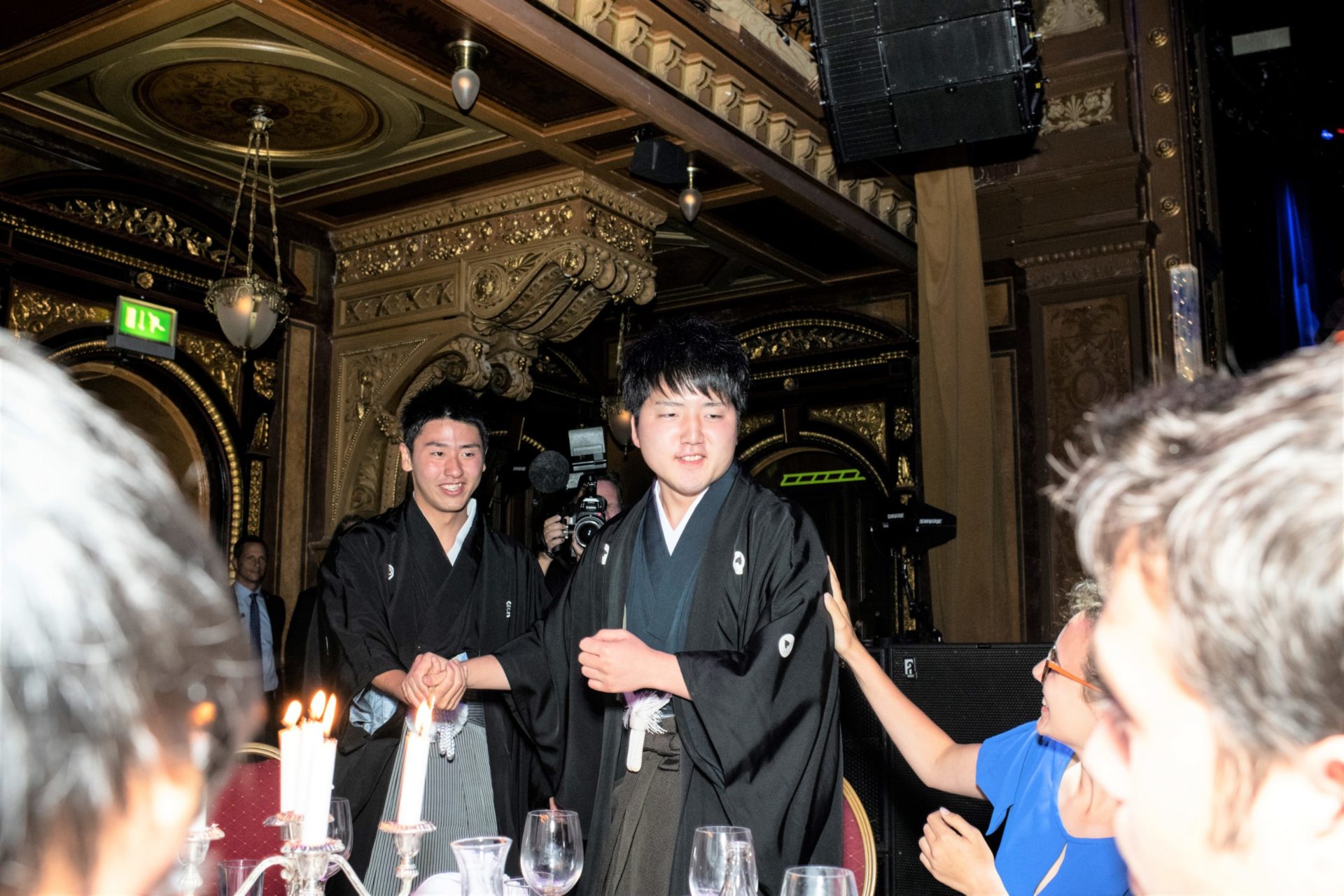Tatsuyoshi Odai and Narumi Sakamoto from Japan
Who is normal and ordinary Narumi and Tatsuyoshi? What do you like to do?
T&N: We want to continue this project and continue to University after finished high school. Ours is a good system, The goal is to spread our system all over the world, to Africa, to India…
What do you like to do in your free time?
T: Reading books and playing and watching sports. I Joined the track and field team and I run the 200m race. But I like all sports like basketball and volleyball. I’m exited Japan played very well in the World Cup in football this summer.
N: I like listening to music. I like music that its instrumental and electronic without vocals, like techno and electronic dance music.
How did you hear and learn about the SJWP competition?
T & N: We found out about it from our teacher in school.
How did you get the idea for your project?
N: At first, it was the seniors on our team that used flowers and plants for water purification. But we started using food crops, kidney beans, maize, vegetables and other plants that fought against eutrophication and purified the water making local water sources, like ponds and lakes, highly effective cultivation fields.
What was the biggest challenge?
N: It was very hard and difficult because of all the time necessary for the project, while at the same time we are high school students that need time to study. But as we are interested in water and the SJWP prize, we decided to join the national competition in Japan. So many people in every society depend on water, water purification and many other water related topics. Watching the news and seeing all the reporting on water changed my heart to want to do something about it.
Has there been any really scary moments during the competition?T: Oh my God, yes, with the interview I was very nervous and stressed. We started sweating (We were wearing traditional Japanese Kimonos that can be very warm)
N: But now I feel so relaxed.
T: We enjoyed the presentation part and so now we are happy
T & N: because we spread knowledge about the project to many great people.
T: So we are happy, but nervous. We can speak english only so slowly.
Have you had a mentor during the project? What is most important about having a mentor?
T: We already won in Japan and so we are very proud. It is a lot about cooperation and the teacher helped us a lot with this. In our high school we also study agriculture particularly. So the school taught us about and introduced us to local farmers and local governments and initiated the cooperation between us and them which was the most important aspect in our project. It was not only me in the project.
What has been a very good moment?
T: We grew crops, maize, kidney beans and fruit etc. and we dreamed that the crops will create water purification as the crops were cultivating. And finally when we got the results we were so exited in this moment.
How did it feel to win the Japanese national competition?
N: We felt so happy that we spread our project.
How do you think the SJWP competition has impacted you?
T: I think it changed me in an important way. We support many people with our idea because we spread the knowledge about the project to great many people. It gave me a pretty picture of the world. So many people, especially people older than me, supported me in seeing this through everyday. So, thank you so much. It’s a change in me because before the SJWP competition my life was normal. I didn’t think I was supported by other people, but this changed and now I know people support me and the other finalists here – every day. So every day I am thankful.
N: I was very busy between this project and school. We helped many people to afford more through this project, but we also need to give thanks to these same people. The feeling of helping people. I thank people for supporting us, but we also helped other people. So yeah, this feeling of helping.
T: I get hope in good ideas and good systems. Understand yourself and all people and I hope you get good ideas and develop good systems.
N: We want to have many people using our system for food production. I hope they use our system in our country and other countries. It’s a system of happiness.
Interviewees: Tatsuyoshi Odai and Narumi Sakamoto
Interviewer: Edward Veem
Team: Japan
Photographer: Jonas Borg




